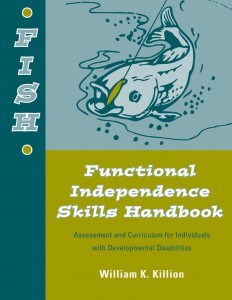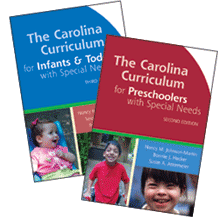Writing goals on an alternative IEP can be a daunting task for a teacher who has never done it before. That has been my experience this year as it is my first year teaching an amazing group of students with Developmental Disabilities.
I have written many modified IEPs over the course of my career. I am very comfortable increasing or decreasing the complexity and/or number of the Ontario Curriculum expectations. I know who to consult and what information I need to gather to make an informed decision about these types of goals for my students. However, writing Alternative Goals required a whole new set of skills this year.
Since Alternative expectations represent skills that are not represented in the Ontario curriculum it is sometimes difficult to know where to begin. For many students in Ontario, they will have Alternative expectations in addition to their modified expectations such as speech remediation or social skills. However, for some students their entire IEP will be Alternative.
So where do you begin?
If your students have been in school for a few years, the face place to find information is the OSR. In the Ontario Student Record, you can see what kind of services and goals have been recommended in the previous school years. You can also refer to previous IEPs to help get your started. If your OSRs arrived a messy blob of papers, take the time now to organize them. A friend of mine sat with me in September to walk me through organizing the hundreds of papers and it has saved my life. I am either filing or referring to an item in my OSRs at least once a week this year so they have to be organized.
The next place to turn is people. Consult with the families and Special Education colleagues. Families play an important role in helping set goals and can give you great ideas about IEP goals. For example, in December one of my parents contacted me and asked if we could work on fastening buttons during our fine motor skill development time as her son was starting to wear jeans to school and needed to learn the skill.
Finally, data collection will play an ongoing role in the creation and updating of goals throughout the year. I do assessments on my students consistently throughout the year. If you want some ideas about what to assess and how to assess things that are not curriculum based, I recommend using one of the two following resources.
The FISH (Functional Independence Skills Handbook)
The Carolina Curriculum (both the infant/toddler and preschooler resource)
They will help you gather the information you need. Both are incredibly expensive to buy, so borrow them from your resource department or special education team.
Here are some examples of what your goals could look like. I am not an expert by any means but if you are like me, sometimes examples can be a really helpful place to get started.
Attention/Focus
_______ will attend to a self-selected activity without being distracted or losing interest for 10 minutes.
_______ will work on completing teacher directed tasks for 25 minutes.
Mathematics
_______ will count to 100 with 75% accuracy.
_______ will demonstrate one-to-one correspondence up to 10 between numbers and objects with 75% accuracy.
_______ will identify time that is personally relevant to her and use it to independently begin tasks.
Life Skills
_______ will wash her face and put the facecloth in the laundry bin daily after lunch.
_______ will use a visual guide to assist her with the steps necessary to establish routines regarding menstrual activities (e.g., bringing necessary items to school, changing pads, disposing of pads, washing hands)
_______ will brush her teeth and put on deodorant daily after lunch.
Personal and Social Development
______ will successfully participate in a turn taking game with a peer, 3 out of 5 opportunities
______ will orally express when someone is in her personal space.
______ will work on sharing the classroom materials with other students.
Communication
_______ will demonstrate a choice between two types of food for snack time by pointing to the item.
_______ will point to a picture when he wants to request a walk.


